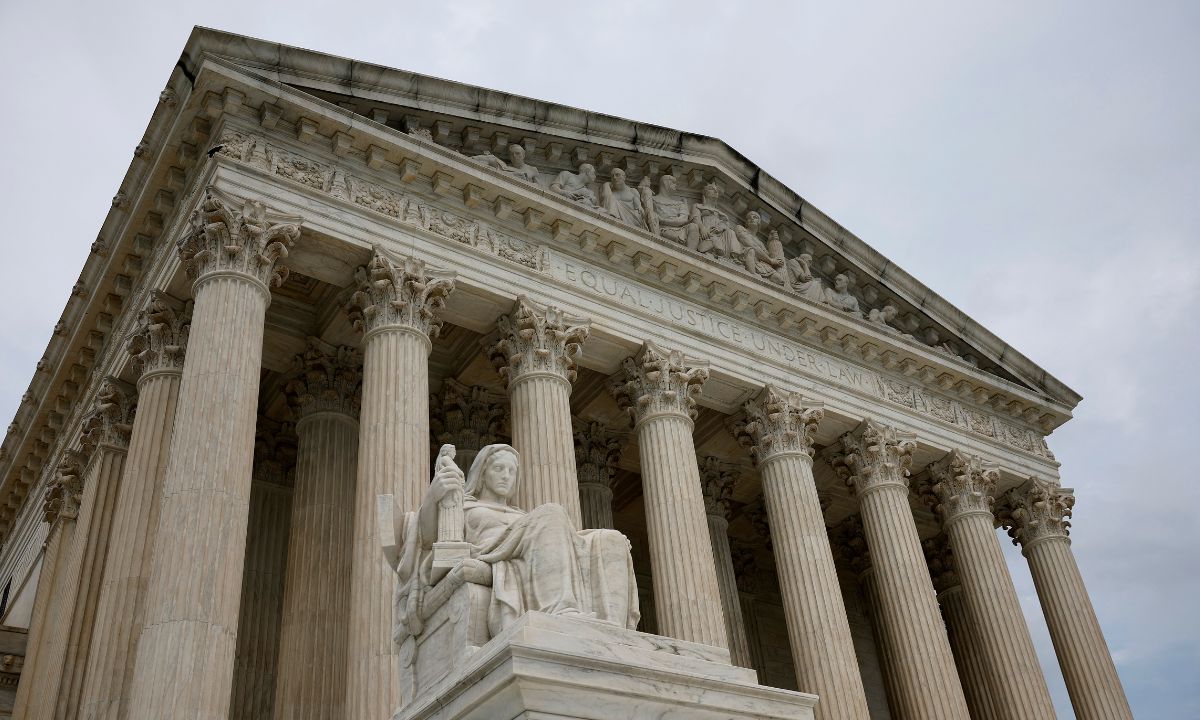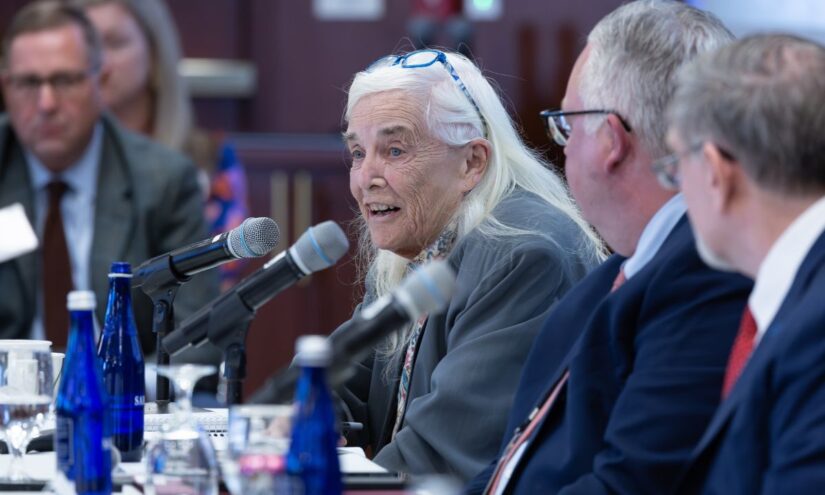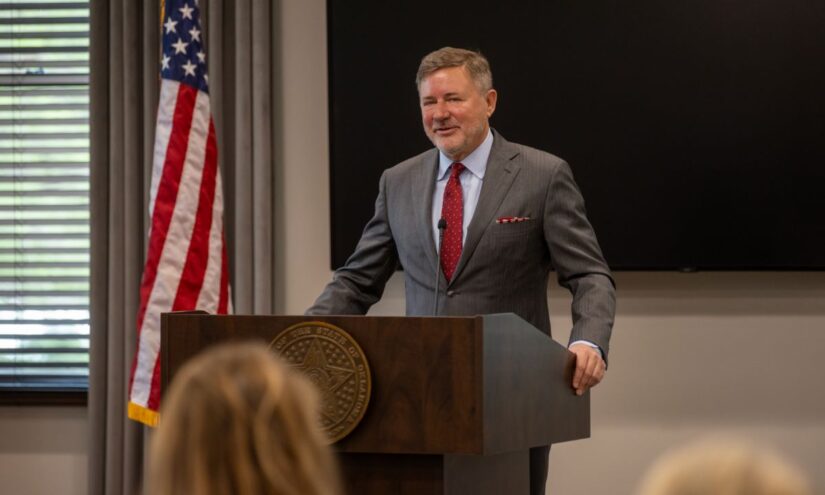Oklahoma’s Catholic Charter School Asks U.S. Supreme Court for Review
Even opponents of faith-based charters predict that if the court takes the case, the majority would rule in favor of opening the school.

Get stories like these delivered straight to your inbox. Sign up for The 74 Newsletter
Updated
A proposed Christian charter school is taking its case to the U.S. Supreme Court, hopeful that a conservative supermajority will offer a sympathetic ear to the notion that schools that practice religion should not be barred from receiving public funds.
St. Isidore of Seville Catholic Virtual School and Oklahoma’s charter school board filed separate petitions with the court Monday, asking the justices to decide an issue that could not only upset accepted norms about charter schools, but radically shift legal understanding about the boundaries between church and state.
While the court might not make a call for months, several experts predict that if it takes up the case, the justices in the majority would likely rule in favor of St. Isidore.
“I believe that if the Supreme Court decides to review it … they will reverse the Oklahoma decision and allow the religious charter school,” Martha Field, a Harvard University law professor, said last month at a conference on emerging school models held at Harvard. “I would not support such a decision, but I believe it is coming.”
The case centers on a dispute over whether or not a public charter school, where students practice religion as part of the curriculum, violates the Establishment Clause of the First Amendment. In April, Oklahoma Attorney General Gentner Drummond, a Republican, argued that state officials broke the law when they approved the charter — an argument the state Supreme Court backed in June. But attorneys for the school and religious freedom advocates say St. Isidore is essentially a private contractor that receives public funding to offer a service — not an arm of the government.
“The Supreme Court has made it clear repeatedly in the last few years that if the government opens up a program to private organizations … it can’t then say ‘But if you’re religious, you’re not eligible,’ ” said Phil Sechler, senior counsel at Alliance Defending Freedom, a conservative Christian law firm and advocacy group that represents the charter board. “That’s essentially what Oklahoma did.”

In response to the petitions, Drummond warned that allowing religious charter schools would open the “floodgates” to non-Christian religions like “radical Islam or even the Church of Satan.”
In its brief, the charter board said the state’s stance toward “minority faiths” is still “open hostility toward religion” and poses a “grave threat” to religious parents.
“Those with progressive values may send their children to progressive charter schools on the state’s dime. Those who subscribe to the principles of Montessori education may send their children to Montessori charter schools for free,” the petition states. “But religious parents may not avail themselves of this same benefit because the would-be charter school they desire is religious.”
‘State actors’
During oral arguments in Oklahoma, one judge asked whether the state was being used as a “test case” to overturn prevailing legal opinions on church-state separation. A national movement of conservative Christians wants the courts to rule in favor of greater religious freedom in schools.
Americans United for the Separation of Church and State, an advocacy organization, is suing over Louisiana’s law that classrooms post the 10 Commandments, and is currently considering legal action over Oklahoma state Superintendent Ryan Walters’s mandate that teachers use the Bible in their lessons.
But one element that could cast doubt on the Supreme Court’s willingness to hear the Oklahoma case is its refusal last year to take a North Carolina case about charter schools — one that religious freedom advocates hoped would have paved the way for faith-based charters.
In Charter Day School v. Peltier, three families sued the school, saying its dress code requiring girls to wear skirts violated their constitutional rights. The charter founders argued that as a nonprofit, the school should be free to enforce rules in line with its traditional values, raising the question of whether a charter school is public or private.
The U.S. Court of Appeals for the Fourth Circuit said no, and the school appealed to the Supreme Court.
While the justices asked for the U.S. solicitor general’s opinion on the case, suggesting some were intrigued by the issues presented, they ultimately turned it down.
As the school’s founders argued in Peltier, supporters of religious charters say that nonprofits, including churches, don’t automatically become “state actors” because they receive public funds. At that same Harvard conference, Mike Moreland, a Villanova University law professor, offered up an analogy.
“Boeing, by entering into an agreement to produce airplanes as a government contractor for the Pentagon, doesn’t become a state actor,” he said. Charter schools, therefore, don’t “turn into state actors for purposes of First Amendment analysis.”
Those who agree with him point to a 1982 case, Rendell-Baker v. Kohn, in which the Supreme Court said a private school receiving substantial public funding to educate troubled teens was not acting under the “color of state law” when it fired six employees.
The Ninth Circuit reached a similar conclusion in a more recent case that involved a charter school, but focused on employment issues rather than what students learn in the classroom.
Those cases could indicate which way the court would lean if it takes the case, said William Jeynes, an education professor at California State University Long Beach, the third panelist at the Harvard event.
“The Supreme Court loves precedent,” he said.
Opponents of religious charter schools say religious freedom proponents are fueling a non-existent debate.
”State laws are clear,” said Starlee Coleman, president and CEO of the National Alliance for Public Charter Schools. “Charter schools are public schools created by the government, and the government is not allowed to establish any religious public schools.”
‘Incredibly popular’
Former Justice Stephen Breyer, a liberal, raised the possibility of a religious charter school in a 2020 Montana case in which the court ruled 5-4 that officials could not exclude a Christian school from a state tax credit scholarship program simply because it was religious.
“What about charter schools?” he asked in his dissent, saying that the court’s ruling introduced “uncertainty” about the distinction between public and nonpublic schools. He reiterated his concern in Carson v. Makin, a 2022 opinion in which the court ruled 6-3 that states with school choice programs can’t discriminate against schools that teach religion.
The case focused on a Maine program that pays families to attend private school if their own communities lack a public high school. Breyer wrote that requiring states to fund religious schools blurred the lines between public and private entities. He asked if that “transformation” means that districts with charters “must pay equivalent funds to parents who wish to give their children a religious education?”
Six months later, Oklahoma’s former Attorney General John O’Connor and state Solicitor General Zach West expanded on the majority’s opinion to say religious organizations should not be prohibited from opening charter schools. When he took office in 2023, Drummond, O’Connor’s replacement, threw out his predecessor’s interpretation.

Since then, Drummond has been at odds with fellow Republicans on the issue, including Walters and Gov. Kevin Stitt. Despite his warning that the charter violates the law, the state’s virtual charter school board voted last October to approve the contract with the Archdiocese of Oklahoma City and the Diocese of Tulsa. That prompted Drummond’s lawsuit.
When the school and the charter board lost, Stitt said the decision “sent a troubling message that religious groups are second-class participants in our education system. Charter schools are incredibly popular in Oklahoma — and all we’re saying is: We can’t choose who gets state dollars based on a private entity’s religious status.”
Even after the state Supreme Court ruled against the school, the state charter board initially refused to rescind its contract and then joined St. Isidore in appealing the decision to the U.S. Supreme Court.
Under pressure from Drummond, who called the charter “a serious threat to the religious liberty of all four million Oklahomans,” the board finally voided the contract in August.
While the school was prepared to serve up to 500 students this fall, it received less than half that number of applications.
Despite the court’s traditional deference to existing case law, Field noted that the current justices haven’t shown the same regard for previous opinions they disagree with. Overturning abortion rights is just one example she cited.
For someone who clerked for former Chief Justice Earl Warren in the 1960s — when the court ruled against prayer and Bible readings in the classroom — she said it’s been disconcerting to see the legal ground shift so radically.
“It seems that a lot of people here don’t like the Warren court,” she told the Harvard attendees. “When I went to law school, separatism was the doctrine, and we all believe whatever we learned in law school.”
Get stories like these delivered straight to your inbox. Sign up for The 74 Newsletter

;)
